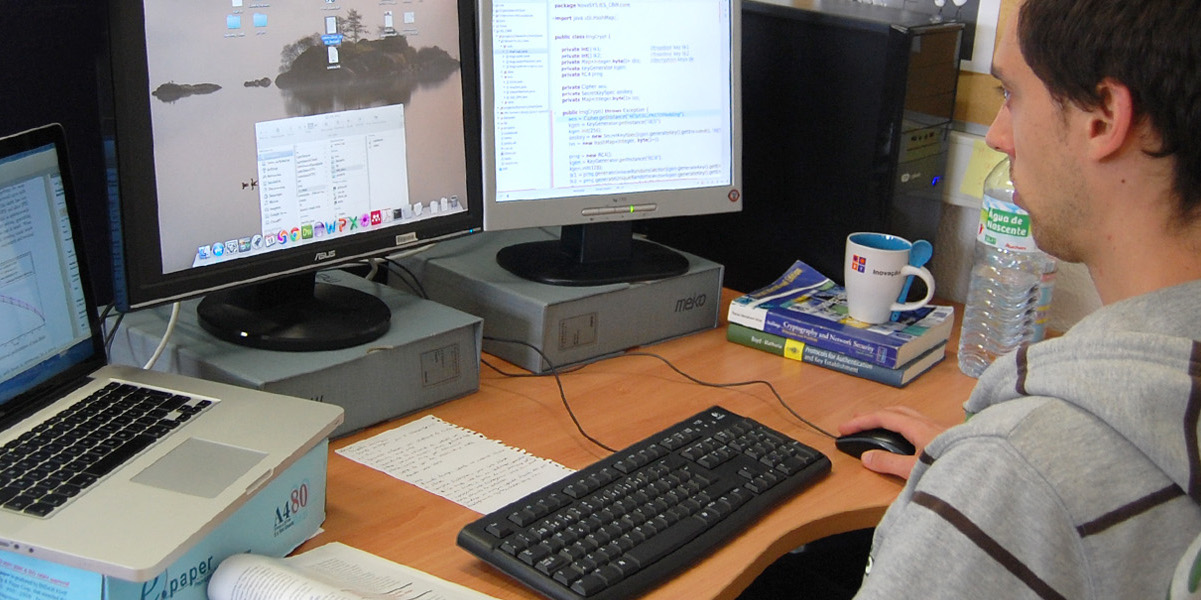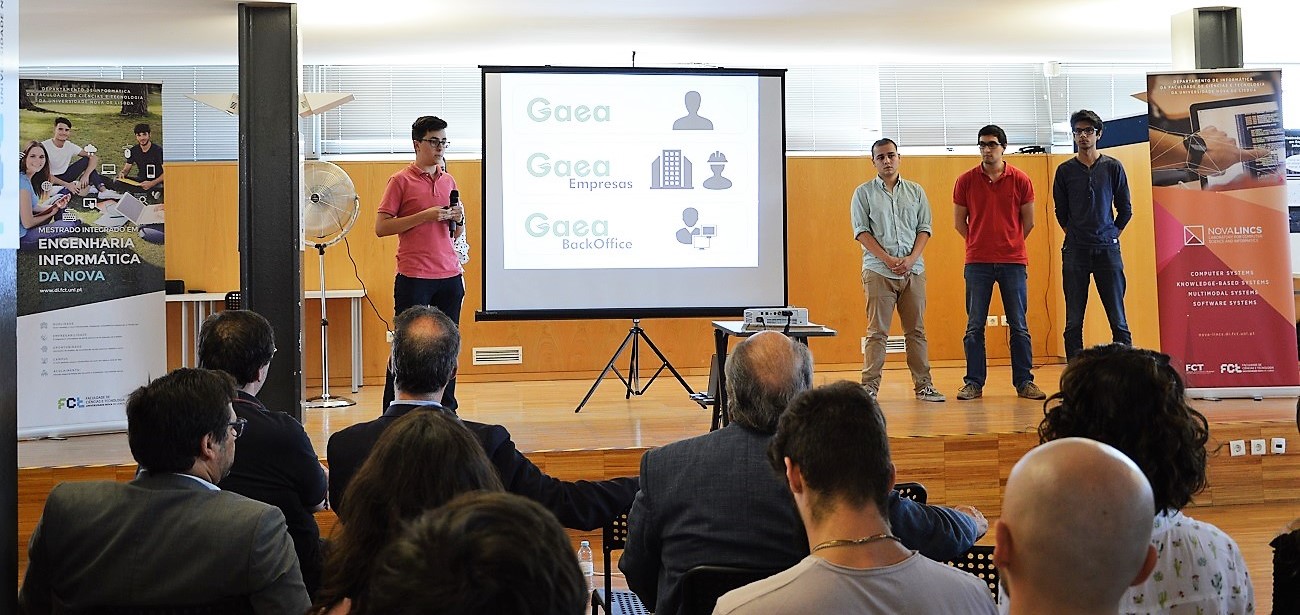
(Curriculum Development Activity)
Curricular Development Activity (ADC) is an innovative curricular unit, unique at the national level, in the context of higher education courses in Computer Science and Engineering. It is only offered by NOVA SST's Computer Science and Engineering Bachelor Degree, which adds differentiating value to our students’ curriculum.
It offers students an integrated experience of an applied technical activity in an open context (that is, outside the classroom) appropriate to their level of knowledge while they are still in the middle of the course.
It is a mandatory curricular unit of 12 ECTS that lasts 20 weeks (2 and a half days per week) and is placed in the last semester of the degree program.
The completion context varies depending on the students' choice, with three options: an engineering/innovation project, a research project, or a company internship.
This option allows the student to develop a technical Computer Science and Engineering activity carried out in a company or institution external to the Department of Computer Science. Typical activities, proposed by a wide range of companies and institutions with whom the Department of Computer Science has established protocols and is certified by the Course Committee, aim to promote the student's integration into teams and tasks that provide them with the development of relevant technical and social skills in immersive contact in the business environment.

Launched in the 15-16 academic year, this option allows the student to develop an individual project to initiate scientific research in Computer Science and Engineering. These works are guided by a teacher/researcher and carried out in the context of an ongoing research project at the Department of Computer Science / NOVA LINCS research lab. During this period, the student integrates and works closely with team members who carry out the research project, typically teachers/researchers and doctoral and master's students. Many of the students who carried out their work in the Undergraduates Research Opportunities Program (UROP) ended up contributing to relevant research results from DI / NOVA LINCS, with international relevance. Applications must be supported by a letter of motivation, with potential enrollees being required to have a course average of 15.5.

This option allows the student to develop an engineering project with an innovation component in a team with colleagues to create a completely functional “product/system/application” using good practices and tools and with production quality. The working environment is the IT Department, where students are offered opportunities to interact with potential users of the system to be developed and opportunities to support the future evolution of the best projects. At the end of the unit, it is customary to hold a workshop/exhibition where the results of the projects are publicly presented by their authors.

Despite being carried out in a very different social context, all these alternatives provide and reinforce a set of common skills.
Knowledge: Interpret the requirements and context of a problematic situation with some dimension in computer science and engineering. Develop solutions, techniques, and methods to be used in an assisted but autonomous way.
Know-how: Implement one or more components required for the intended solution, using industrial quality development instruments and tools. Validate, debug, and evaluate obtained solutions.
Cross-cutting skills: Reinforce system vision and social and economic relevance of Computer Engineering, autonomy, critical thinking, teamwork, and other soft skills related to personal and professional attitude.